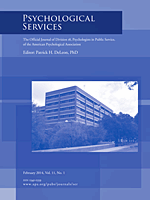 The week at Retraction Watch featured a particularly misleading retraction notice, and a university stripping a graduate of her PhD for misconduct. Here’s what was happening elsewhere: Continue reading Weekend reads: Papers de-emphasized for funding; reproducibility revolution; reining in fraud in China
The week at Retraction Watch featured a particularly misleading retraction notice, and a university stripping a graduate of her PhD for misconduct. Here’s what was happening elsewhere: Continue reading Weekend reads: Papers de-emphasized for funding; reproducibility revolution; reining in fraud in China
Author: Ivan Oransky
Weekend reads: The end of journals?; Impact Factor for sale; fake peer reviews earn funding bans
 This morning, our thoughts are with the people of Paris. The week at Retraction Watch featured the retraction of a paper claiming dramatically higher rates of sexual trauma among men in the military, and a look at whether gender plays a role in peer review. Also: We’re hiring. Here’s what was happening elsewhere: Continue reading Weekend reads: The end of journals?; Impact Factor for sale; fake peer reviews earn funding bans
This morning, our thoughts are with the people of Paris. The week at Retraction Watch featured the retraction of a paper claiming dramatically higher rates of sexual trauma among men in the military, and a look at whether gender plays a role in peer review. Also: We’re hiring. Here’s what was happening elsewhere: Continue reading Weekend reads: The end of journals?; Impact Factor for sale; fake peer reviews earn funding bans
Join our team: Retraction Watch is hiring a second staff writer

Thanks to a generous grant, we’re in the enviable position of being able to add a second staff writer. Which means we’re looking for applicants.
The job is not for the faint of heart. It’s definitely fast-paced; our staff writer will be expected to write an average of two posts per day, and feel comfortable dropping the day’s plan to jump on a breaking story. Our writers also contribute to bigger projects such as the feature we wrote for Nature on fake peer reviews.
We’re looking for Continue reading Join our team: Retraction Watch is hiring a second staff writer
Study claiming dramatically higher rates of male military sexual trauma is retracted
 A study that found a 15-fold increase in the rate of sexual trauma among men in the U.S. military — and sparked suggestions of “an epidemic of male-on-male sex crimes” in the military among conservative media outlets — has been retracted because of a flaw in the analysis.
A study that found a 15-fold increase in the rate of sexual trauma among men in the U.S. military — and sparked suggestions of “an epidemic of male-on-male sex crimes” in the military among conservative media outlets — has been retracted because of a flaw in the analysis.
The study, published just last week, appeared in Psychological Services, an American Psychological Association (APA) journal. In an announcement Sunday titled “American Psychological Association Retracts Article Positing Excessively High Rates of Sexual Trauma Among Military Men,” the APA said that “Scholars raised valid concerns regarding the design and statistical analysis which compromise the findings.” Here’s the text: Continue reading Study claiming dramatically higher rates of male military sexual trauma is retracted
Weekend reads: Elsevier mutiny; babies as co-authors; what to do after rejection
 This week’s Weekend Reads, which appears below, was preempted yesterday by the news that the Office of Research Integrity had issued a finding of misconduct in the long-running case of Anil Potti. The week also featured news about a child psychiatry trial halted for unexplained reasons, and saw the launch of our new weekly column at STAT, a new life sciences site from Boston Globe Media. Here’s what was happening elsewhere: Continue reading Weekend reads: Elsevier mutiny; babies as co-authors; what to do after rejection
This week’s Weekend Reads, which appears below, was preempted yesterday by the news that the Office of Research Integrity had issued a finding of misconduct in the long-running case of Anil Potti. The week also featured news about a child psychiatry trial halted for unexplained reasons, and saw the launch of our new weekly column at STAT, a new life sciences site from Boston Globe Media. Here’s what was happening elsewhere: Continue reading Weekend reads: Elsevier mutiny; babies as co-authors; what to do after rejection
It’s official: Anil Potti faked cancer research data, say Feds

Following five years of scrutiny, more than ten retractions, multiple settled lawsuits, and medical board reprimands, we may finally have some resolution on the case of Anil Potti, the once-rising cancer research star who resigned from Duke in 2010.
While there have been numerous allegations of misconduct in Potti’s work, and strong comments to that effect by Potti’s former mentor, Joseph Nevins, there has been no official finding. Today, that changes. Potti “engaged in research misconduct,” the Office of Research Integrity (ORI) concludes in a report to be published in the Federal Register on Monday.
Potti — referred to as “respondent” in the report — included “false research data” in reports of research from six different NIH grants, according to the ORI: Continue reading It’s official: Anil Potti faked cancer research data, say Feds
Weekend reads: Psychology stats errors abound; font choice dooms grant application
 This week at Retraction Watch featured high-profile retractions from Nature and the BMJ. Here’s what was happening elsewhere: Continue reading Weekend reads: Psychology stats errors abound; font choice dooms grant application
This week at Retraction Watch featured high-profile retractions from Nature and the BMJ. Here’s what was happening elsewhere: Continue reading Weekend reads: Psychology stats errors abound; font choice dooms grant application
Weekend reads, part 2: Pressure to publish limits innovation; Frontiers a predatory publisher?
 Lots of good reads elsewhere this week. As promised yesterday, here’s part 2: Continue reading Weekend reads, part 2: Pressure to publish limits innovation; Frontiers a predatory publisher?
Lots of good reads elsewhere this week. As promised yesterday, here’s part 2: Continue reading Weekend reads, part 2: Pressure to publish limits innovation; Frontiers a predatory publisher?
Weekend reads, part 1: Pirating paywalled papers; a sex scandal and fudged data at Stanford
 The week at Retraction Watch featured a lot of movement on our leaderboard, with a new total for Diederik Stapel, and a new entry. It also featured a lot going on elsewhere, so here’s part I of Weekend Reads (we’ll have more tomorrow morning): Continue reading Weekend reads, part 1: Pirating paywalled papers; a sex scandal and fudged data at Stanford
The week at Retraction Watch featured a lot of movement on our leaderboard, with a new total for Diederik Stapel, and a new entry. It also featured a lot going on elsewhere, so here’s part I of Weekend Reads (we’ll have more tomorrow morning): Continue reading Weekend reads, part 1: Pirating paywalled papers; a sex scandal and fudged data at Stanford
Weekend reads: Angry meta-analysts; imposter cell lines; when things go wrong
 This week at Retraction Watch featured nine more fake peer review retractions, this time from Elsevier, and an update to the retraction count for one-time record holder Joachim Boldt. Here’s what was happening elsewhere: Continue reading Weekend reads: Angry meta-analysts; imposter cell lines; when things go wrong
This week at Retraction Watch featured nine more fake peer review retractions, this time from Elsevier, and an update to the retraction count for one-time record holder Joachim Boldt. Here’s what was happening elsewhere: Continue reading Weekend reads: Angry meta-analysts; imposter cell lines; when things go wrong